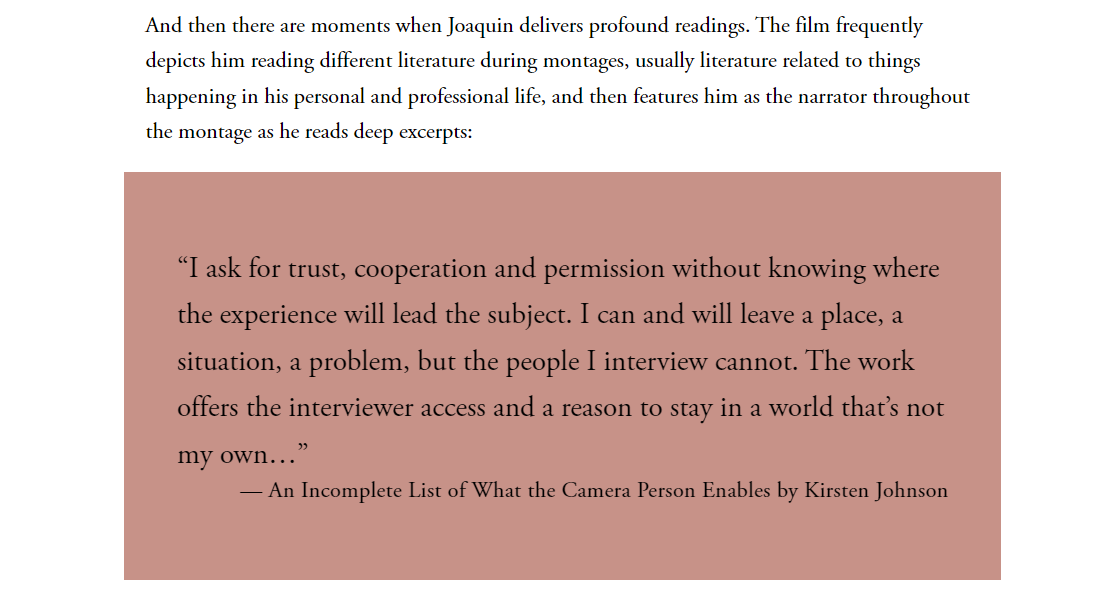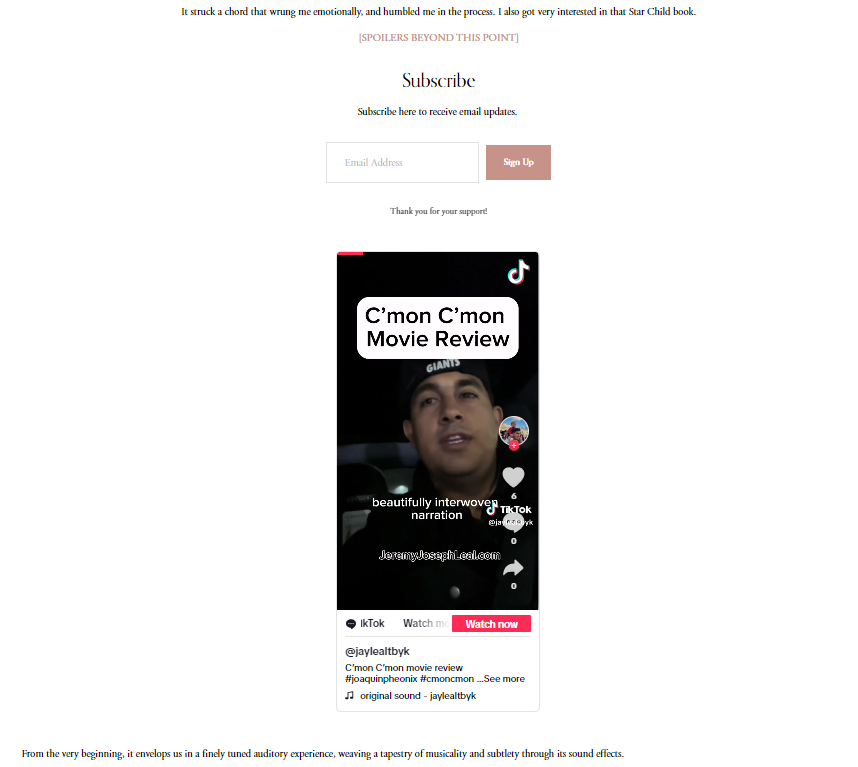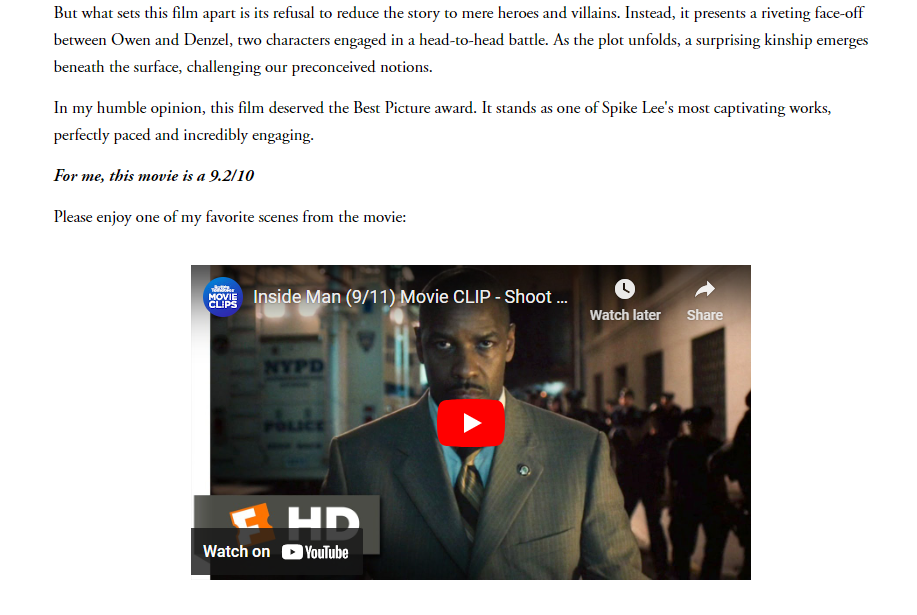How to Write Effective Movie Reviews: A Comprehensive Guide
Writing a movie review is a skill that combines your passion for cinema with your ability to analyze and communicate your thoughts effectively.
Whatever your reason for wanting to write a movie review—whether it's because you genuinely love movies, you're attempting to generate online income through ad placements, or perhaps it's a combination of both, or you're a person who has studied film in school or is involved in the industry in some capacity—this comprehensive guide will provide you with the tips and techniques you need to write engaging and insightful movie reviews.
What Is a Movie Review?
Traditionally, a movie review is an assessment of a film that encompasses a summary of the movie, an analysis, and personal opinions.
Often, these reviews serve as valuable resources for film enthusiasts who rely on them to decide whether to watch a particular film or to gain a deeper understanding of a movie they've already seen.
But I believe a movie review can be whatever you intend it to be.
However, it's important to have a clear purpose for the piece of work you're assembling. Your review should articulate specific points and outline a well-defined plan for its presentation, all while considering how it will be received. Will it offer some form of benefit to those who come across it? What motivates you to write the review?
Perhaps a movie has inspired you.
Or you're crafting a review to make a broader point that isn't exclusively focused on the film itself but utilizes the movie as a conduit for conveying your message.
Personally, I write about movies to both earn income through my website and to indulge in my love for great stories, creating a harmonious blend of both motivations. I also find the act of working through my feelings sparked by certain stories therapeutic for my peace of mind.
However, maintaining the dedication and work ethic required to generate income through this endeavor demands time and effort. Therefore, my passion for movies becomes an essential factor that makes it a worthwhile investment of my time.
Movie reviews can be written articles, recorded videos, or podcasts, making them accessible to diverse audiences through blogs, news publications, entertainment podcasts, radio broadcasts, television, or streaming platforms.
Often, these elements are combined to provide the best possible user experience for the target audience you aim to reach.
How to Write a Movie Review
Now, let's delve into the process of writing an effective movie review with these essential guidelines:
Have something to say:
Hopefully, something original or unique. Push your thoughts further down the road to extract valuable insights or ideas. Keep the conversation the movie starts going by providing fresh perspectives.
Make specific references and details:
Ensure that you discuss precise moments within the film, incorporating quotes where relevant. For instance, highlight specific instances that had a profound impact on you regarding the acting. Be meticulous in correctly identifying and distinguishing all character names, clarifying whether you are referring to the actor or the character. While it is not essential to list every credit for the film, prioritize mentioning the credits and actors' names that are pivotal in supporting the points you make in your article. Multiple viewings can often reveal new insights that you can seamlessly integrate into your review.
Screen shot from C’mon C’mon Movie Review: Star Children
Start with a hook:
This can take various including but not limited to a captivating story, intriguing fact, compelling question, powerful film quote, or brief anecdote. The primary goal is to immediately engage your readers, drawing them into your review. Express your initial thoughts on the movie and establish the tone, aligning it with the film's mood and your style. Consider your audience and the film's significance—whether it's a blockbuster, indie gem, classic, or thought-provoking documentary. Share a brief personal connection or your reason for choosing to watch the movie, avoiding spoilers and keeping the introduction concise, as it sets the stage for your entire review.
If you do reveal spoilers:
Place a clear spoiler warning to precede any spoiler content and ensure it's easily visible to the audience. Keep in mind that rules for handling spoilers differ on various platforms, so adapt your approach accordingly to avoid spoilers being seen or inferred inadvertently.
Screen shot from C’mon C’mon Movie Review: Star Children
Establish your opinion:
As a reviewer, you should have well-informed opinions about the film's various aspects. Use evidence from the film, such as character development and scene descriptions, to support your claims. Compare the film to others in the same genre or by the same filmmaker to provide context.
Think of your narrative:
How will this be digested? What will the reader think from the moment they start reading? What if they skim your review? How will you make your main and best points more prevalent? The perspective of the reader should always be considered, and how can you bring them value? Then, construct your narrative to unfold in a way that aligns with how they would best absorb your review.
Trim the fat:
Make sure you don't use unnecessary words. Don't disrupt your main narrative with extraneous words, as it can overwhelm the reader and make them put in extra effort. Give your reader credit enough as they will understand your humor, logical reasoning, and be able to retain it.
Use video and audio and social:
Some people don't have the time or patience to dedicate to reading, so if it's worth the time to you, make other forms of your review available, such as social videos or podcasts.
Screen shot from C’mon C’mon Movie Review: Star Children
Collaborating is social proof:
A conversation with someone is sometimes more valid concerning matters of opinion because there is another person in the room who can question the other person. Consider podcasting with someone or interviewing someone. Additionally, consider citing sources and being transparent about where you got your information. This makes the piece more authoritative and encourages backlinking to your own site if you do it consistently. It follows social media logic in a way that you are 'tagging' the original sources. If they track their backlinks, they will see you are a reputable source, at least. Citing reliable sources is a best practice and boosts your credibility. Transparency is a good thing.
Evaluate the film:
After presenting your analysis and opinions, offer an overall evaluation of the film. Discuss whether the movie effectively conveyed its intended themes and storyline and whether you would recommend it to others. Some reviewers choose to assign a letter grade, passing grade, or percentage score to summarize their assessment.
Screen shot from Inside Man Review: Masterful Denzel
Take notes:
While watching the film, jot down critical elements you want to discuss in your review. This can include aspects like performances, lighting choices, music placement, CGI, thematic arcs, and more.
Go beyond the storyline:
In-depth movie reviews should delve into more than just the plot. Include character analyses, explore the film's themes, discuss cinematography, tone, sound design, story structure, special effects, acting, direction, and pacing.
Summary is not required:
While providing a brief or in-depth plot summary can enhance the reader's experience, I believe it's not always necessary. There are cases when you're writing for an audience that has already seen the movie, so a detailed plot summary may be more information than the reader desires. This is why developing your narrative and understanding the purpose of your article, along with knowing what you want to convey to your target audience, is a crucial initial step. Do they require a summary? It depends on the article's goal. However, including a summary can be universally beneficial, as it may enhance your SEO and reach a broader audience beyond your niche.
Practice makes better processes
As you continue to hone your movie review writing skills, remember that the more reviews you write, the better you'll become at analyzing films and engaging your audience. With each one be mindful of what is working and what is not - considering things like time saving factors, creative concept development efficiency, editing processes, and how can they be improved to best fit your desired workflow.
So, start watching, start writing, and enjoy the journey of becoming a skilled movie reviewer. Your insights and perspectives will add value to the world of cinema criticism and it’s important to contribute in the most responsible way you can.



